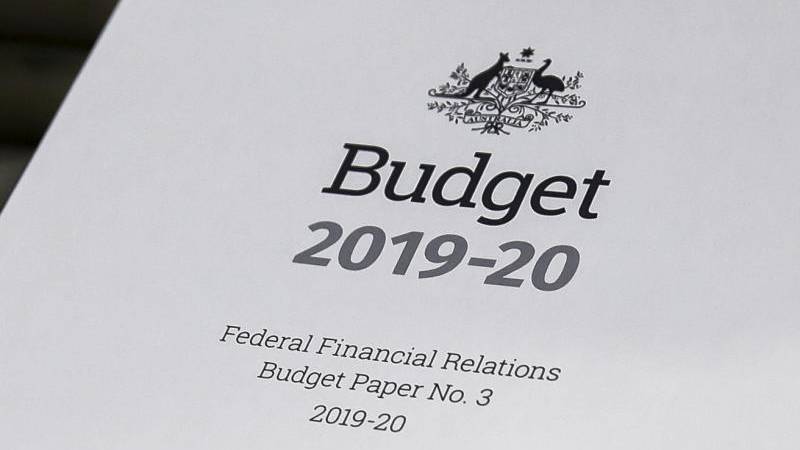
With an election looming, the Federal Government handed down its 2019 Budget with a number of sweeteners for technology projects. We take a look at some of the top tech investments from the Coalition’s 2019-20 Budget.
Australian Electoral Commission (AEC)
AEC will receive $10.8 million over two years to investigate new polling place technology and upgrades to the AEC’s “ageing core ICT infrastructure”.
My Health Record
The Government’s digital health records scheme, My Health Record, will receive a $200.0 million booster to continue its rollout and expansion over the next year. Nearly 23 million individuals have been registered with a My Health Record account – over 90 per cent of the Australian population – following the conclusion of the final opt-out period in February.
GovPass
The DTA’s GovPass program, a universal digital identification service to access government services and a “key component” of the Government’s digital transformation efforts, will receive $67.1 million.
The funding will support continued development of GovPass’s underlying infrastructure and rollout pilot programs, as well as further analysis for a full rollout.
Digital employment services pilot
$249.8 million will be directed to pilot a new employment services model that includes a digital employment servicing, in preparation of a national rollout.
The Government said it would yield net efficiencies of $59.4 million over five years due to a reduction in expenditure for face-to-face servicing arrangements that would have been paid under the jobactive program.
Australian Tax Office (ATO)
The ATO will receive $70.0 million over two years to support migration from its existing data centre provider, including cost-assessment for the full data migration.
$6.9 million will also be provided over four years to support “additional analytical capabilities” within Treasury and other agencies.
$1.3 million will be allocated to the Australian Taxation Office (ATO) to establish a local Pan-European Public Procurement On-line (PEPPOL) authority.
Medical Research Future Fund
$80.0 million from the Government’s $5 billion Medical Research Future Fund (MRFF) will be allocated to data infrastructure enhancement – with a “focus on registries, and linkage platforms”.
Cashless debit card scheme
The Cashless Debit Card (CDC) program will receive $128.8 million to extend its trials to June 2021. The trial program currently operates in parts of South Australia, Western Australia and Queensland for those on an income support payment (e.g. Newstart, Youth Allowance, Age Pension, Parenting Payment etc.) from the Government.
This funding will also allow for the expansion and further enhancements to the CDC-supporting technology, including allowing interest to be calculated and paid on any funds accrued in CDC accounts.
Regional connectivity package
The Department of Communications and the Arts will be allocated $220.0 million over four years to improve regional telecommunications.
This includes:
— $160.0 million for grants for the Mobile Black Spot Program;
— $60.0 million for a Regional Connectivity Program, aimed at improving mobile and broadband services online telecommunications advice, trials for “innovative voice services” to remote Australia and support for the Universal Service Guarantee.
Aged Care Risk-based compliance
The Aged Care Quality and Safety Commission will receive $38.4 million over five years to establish a risk-based compliance and information sharing system.
Smart Cities:
As part of the previously announced smart cities program, Adelaide City will receive $20.0 million for a collaborative research engagement hub.
A separate $10.0 million will be allocated to the rollout of smart technology infrastructure in the Adelaide City centre as part of the previously announced. B
$6.0 million will also be directed to a Mission Control Centre in Adelaide to support the emerging space start-up industry, as well as research and educational institutions across Australia.
Health Sciences
$4.4 million will be allocated over four years to implement the recommendations of the Third Review of the National Gene Technology Scheme, supporting the Office of the Gene Technology Regulator.
Commonwealth Grants Commission
Commonwealth Grants Commission (CGC), a statutory advisory body for the Federal Government on financial assistance to the States and Territories, will receive $11.7 million over four years (and $2.2 million per year ongoing) to improve its ICT capacity.
The funding boost aims to enhance the CGC’s ability to support the distribution of GST revenues among the States and Territories.
Electronic Invoicing at DHS
The Department of Human Services will receive $1.0 million to facilitate the implementation and adoption of e-invoicing in Australia.
National Library of Australia
The Canberra-based National Library of Australia will receive $10.0 million over four years to digitise its collection and to expand its availability through Trove, an online database.
Office of the eSafety Commissioner
The Office of the eSafety Commissioner will be handed $10.0 million over four years to establish a new Online Safety Grants Program for online safety education and training projects for children by non-government organisations.
Criminal Intelligence
The Australian Criminal Intelligence Commission (ACIC) will receive $4.8 million over four years to continue the National Wastewater Drug Monitoring Program, aimed to “enhance national data on illicit drug use”.
A further $7.8 million will be allocated over four years to the ACIC to establish and host a publicly available National Public Register of Child Sex Offenders.
Freight and infrastructure
A combined $8.5 million will go to the Department of Infrastructure, Regional Development and Cities, including $5.2 million for the design of a new freight data hub, including arrangements for data collection, protection, dissemination and hosting, and $3.3 million for the establishment of a freight data exchange pilot, giving the industry access freight data in real-time and a survey of road usage.
Education and STEM
A portion of the $20.1 million investment in Jobs and Education Data Infrastructure Project will be allocated to expanding the Unique Student Identifier (USI) program to all higher education students. The USI provides a centralised repository for students’ education and training records to “[simplify] students’ access to their education and training records”.
$3.4 million will be allocated over four years to encourage more women into science, technology, engineering and mathematics (STEM) education and careers. The funding will support an extension of the Science in Australia Gender Equity program.
Online counter-extremism
$1.8 million will be allocated over two years for digital engagement initiatives to counter extremism online.
Office of Information Commissioner
$25.1 million over three years “to facilitate timely responses to privacy complaints and support strengthened enforcement action in relation to social media and other online platforms that breach privacy regulations.”
Election cybersecurity
An undisclosed amount will be allocated to enhancing cybersecurity arrangements for whole-of-government systems for 2019 Federal election, enhancing monitoring and response capabilities to “mitigate potential cyber threats”. This includes the creation of cyber ‘Sprint Teams’ within the Australian Cyber Security Centre and a Cyber Security Response Fund.
Connectivity in remote WA
$2.0 million will be provided for a detailed feasibility study to assess options for improving digital connectivity in the Grainbelt region of Western Australia. The study will examine opportunities to increase broadband connectivity to support agriculture, transport and local communities, using existing infrastructure in the region.
Innovation Games
$3.6 million will be allocated to the Innovation Games – a hackathon for SMEs and students “to solve innovation, technology and/or digital challenges set by a corporate sponsor”. Up to 30 games will be held over the two-year trial period.
Space fund
Announced by the Government in March this year, $19.5 million will be provided over four years to establish a Space Infrastructure Fund to support projects to accelerate the growth of Australia’s space industry.
ACMA support for high-risk communities
The Australian Communications Media Authority will receive $4.0 million to identify, report and support victims of technology-facilitated abuse in high-risk Aboriginal and Torres Strait Islander communities and women who have intellectual disabilities to help protect themselves online.
National Electric Vehicle Strategy
A National Electric Vehicle Strategy (announced in February) will receive $0.4 million in 2019-20 to develop a planned and managed transition to new vehicle technology and infrastructure.





